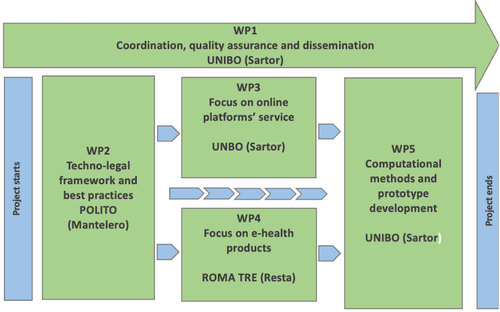Project

PRIMA (PRivacy Infringements Machine-Advice) studies the law and practice of privacy policies, develops methods and techniques for their automated analysis, and implements a prototype to assess their lawfulness. It deploys legal analytics—a mix of data science, artificial intelligence, machine learning, natural language processing and statistics—to detect and assess privacy policies’ infringements.
PRIMA has three main objectives:
A) Normative (doctrinal) objective:
The project will provide a deeper understanding of the legal requirements concerning privacy policies.
It will identify criteria for the assessment of the informative clauses relative to: i) comprehensiveness of information; ii) substantive compliance; and iii) clarity of expression.
It will identify and classify clauses that are unlawful or potentially unlawful to create ad unique dataset.
B) Empirical (socio-legal) objective:
The project will expand the existing knowledge of the structure, logic and dynamic of practices concerning privacy policies in order to:
- detect trends in the content and usage of the policies;
- discuss impacts of privacy policies’ formulation and accessibility on parties’ behaviour;
- identify and classify legal shortcomings as well as good practices.
C) Legal-informatics objective:
The project will provide a new approach for the analysis, assessment and improvement of legal documents. It will show how methods and techniques for natural language processing and machine learning can be deployed and further developed in the domain of data protection policies and related contracts.
It will build a prototype to:
- detect and assess privacy policies’ infringements, by identifying (potentially) unlawful and unclear clauses and pointing to missing information;
- compute a data-protection score, providing an overall evaluation of the privacy policies;
- provide advice to improve them;
- facilitate appropriate legal or social counteractions.
The project team combines all the different scientific, theoretical and methodological approaches into a new interdisciplinary synthesis (law, computing, legal informatics, AI, machine learning, legal theory, computer ethics).
PRIMA has the potential to have a strong impact on science and technology as well as on society and economics, placing Italian legal research and practice at the forefront in the use of AI in the legal domain. The study and the practice of the law will profit from a new powerful method for legal cognition, practice and law enforcement. PRIMA will contribute to what we may call citizens-empowering AI, i.e., to the development of AI technologies supporting individuals and civil society. It will develop methods and technologies to engage more proactively and effectively in monitoring compliance and in enforcing the law.
(Ref. prot. n.: 20224TPEYC - CUP J53D23005130001).

PERT chart of the PRIMA Project